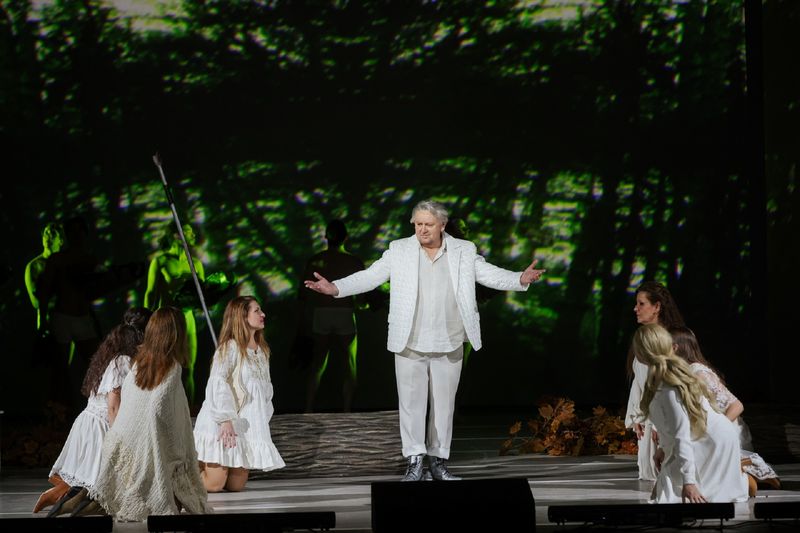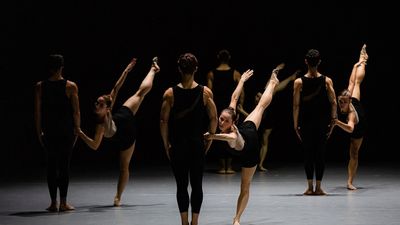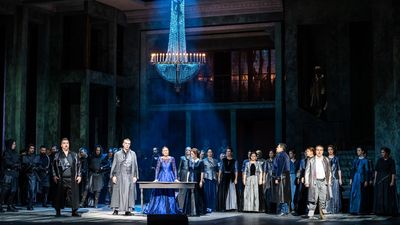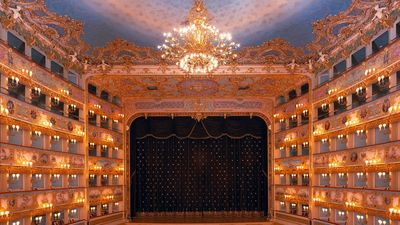
On Palm Sunday, Maundy Thursday, and Holy Saturday, Bach's St. Matthew Passion will be performed; on Good Friday and Easter Sunday, Wagner's Parsifal; and on Easter Sunday and Monday, as part of the Easter with Mascagni programme, concert performances of Messa di Gloria and Cavalleria Rusticana will be held at the Ybl Palace on Andrássy Avenue.
The story of Christ’s martyrdom and resurrection has become a defining source of inspiration for Western art over the past two millennia, inspiring numerous moving and elevated works. One such piece is Bach’s St. Matthew Passion, which is not only the composer’s greatest work, but also an unsurpassed pinnacle of Protestant church music and universal music history. Although the oratorio – depicting Christ’s sufferings based on the Gospel of Matthew – fell into obscurity after Bach’s death, it was rediscovered a hundred years later by Felix Mendelssohn-Bartholdy, sparking a true Bach renaissance. In tribute to this legacy, since 2013 the Hungarian State Opera has been presenting the St. Matthew Passion in Mendelssohn’s adaptation, staged with animated projections by Géza M. Tóth. In the Palm Sunday, Maundy Thursday, and Holy Saturday performances (13, 17, and 19 April 2025), the solo roles will be performed by seasoned, outstanding Hungarian artists – István Kovács (Jesus), Zita Váradi, Atala Schöck, and Krisztián Cser – joined by Rainer Trost, a sought-after soloist at the world’s leading opera houses, who will perform the role of the Evangelist and the tenor solo. These concerts, presented with the participation of the Hungarian State Opera Orchestra, Chorus, and Children’s Chorus will for the first time be conducted by Zoltán Pad, the Liszt Award-winning chorus master of the Hungarian Radio Choir.
Wagner’s final music drama, Parsifal – which the composer conceived as a “festival play for the consecration of the stage” and which tells a story of fear of worldly temptations and sinful desires embedded within a tale of redemption – is also closely linked to the Christian mysteries surrounding Easter. Through his pure and naïve faith, Parsifal is able to save those suffering from physical and spiritual afflictions and joins the ranks of the keepers of the Holy Grail, the sacred chalice that caught Christ’s blood. András Almási-Tóth’s production, premiered in 2022, will return this year on Good Friday (18 April) and Easter Sunday (20 April , featuring Krisztián Cser’s debut in the role of Klingsor. The other leading roles will be performed by well-known and outstanding soloists: István Kovácsházi (Parsifal), Mihály Kálmándy (Amfortas), Péter Fried (Titurel), Gábor Bretz (Gurnemanz), and Andrea Szántó (Kundry). The OPERA Orchestra, Chorus, and Children’s Chorus will be conducted by Péter Halász, the company’s principal guest conductor and a renowned interpreter of Wagner’s works.
Although Mascagni’s name is primarily associated with Cavalleria Rusticana, his mass –suggestively titled to evoke radiance – offers a similarly uplifting experience, with the Gloria at its heart. The composer began working on the piece in 1887, but the process was interrupted by the commission for Cavalleria Rusticana. It’s no surprise, then, that the mass’s flowing melodies, emotional and romantic contours, moments of near-dramatic tension, and occasional intimate chamber-like tone may at times remind listeners of Cavalleria Rusticana. Messa di Gloria, written for chorus and orchestra, will be performed on Easter Sunday and Monday (20–21 April ), as well as on 23 April. The two solo roles will be sung by Boldizsár László and Zoltán Kelemen.
The second half of the evening will feature the aforementioned Cavalleria Rusticana, the work with which Mascagni burst onto the operatic scene in a triumph he was never able to surpass. Set in a Sicilian village on Easter Sunday, this tragic drama of jealousy established Mascagni as a key figure of the verismo movement: his opera presents everyday heroes who fall victim to their own uncontrollable passions. The concert performance will feature Boldizsár László (Turiddu), Klára Vincze (Santuzza), Mária Farkasréti (Lucia), Zoltán Kelemen (Alfio), and Melinda Heiter (Lola). Both productions will be conducted by István Dénes, Liszt Award-winning Eternal Member of the Hungarian State Opera.
Photo by Attila Nagy


